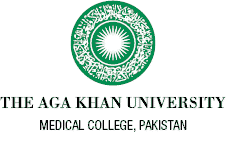The "Building Disease Models and Intervention Scenarios - A Health Data Science Workshop" held from June 1-3, 2023, was organized by the CITRIC – Health Data Science Centre at The Aga Khan University Karachi. The event hosted participants from all over Pakistan spanning various industries. The primary goal of the workshop was to provide participants with a comprehensive understanding of disease modeling, allowing them to gain extensive experience in utilizing modeling tools. The event followed a structured format, with insightful lectures delivered in the first half of each day, followed by hands-on sessions in the latter half. Over the course of three days, the workshop helped participants to develop essential skills in analysis and research, enabling them to conduct in-depth studies and effectively contribute to the field of disease modeling. Participants had the opportunity to engage with tools such as 'R', RStudio and GeNIe Modeler. They also learnt to use Bayesian approaches to design models for non-communicable diseases.
The Centre had the honour of hosting Dr Aaron Lim as a distinguished speaker and guest lecturer. Dr Lim, a prominent member of the research team at the University of Bristol Medical School, specializes in infectious disease modeling. Dr Lim's presentation underscored the importance of modeling in uncovering patterns and trends related to infectious diseases such as hepatitis C and HIV. He shed light on the challenges faced in disease control and highlighted the significance of evidence-based interventions to address these complex public health issues. The event concluded with a talk by Dr Adnan A. Khan, a highly experienced professional in public health policy and research. Drawing on his extensive collaborations with governments, NGOs, and international development organizations, Dr Khan provided valuable insights into the process of translating data into impactful policies, with a specific focus on health decision-making in Pakistan. He highlighted the complexities involved and advocated for improved institutional mechanisms, evidence-based approaches, and effective communication strategies to drive positive change in the public health domain. The workshop served as a platform for participants to enhance their knowledge and skills in disease modeling, while also benefiting from the expertise and perspectives of renowned experts in the field.


